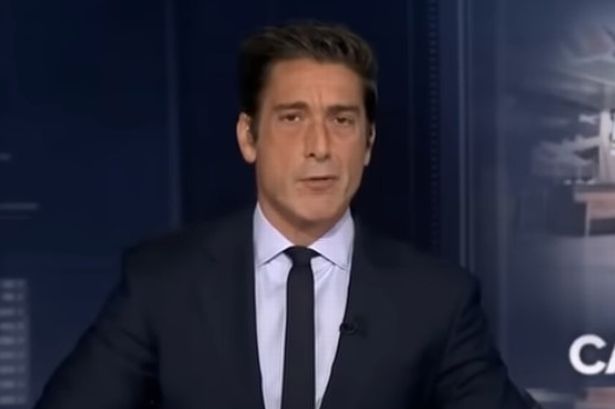Viewers of ABC News were taken aback on March 14, 2024, when David Muir was absent from his anchor desk. In his place, Wade Johnson delivered a critical report on the Trump administration and its management of a significant aviation shutdown affecting thousands of travelers.
Johnson began the broadcast by stating, “Good evening and thanks for joining us. I’m Wade Johnson in for David tonight.” His report detailed how over 1,000 flights were delayed nationwide, with major airlines such as Delta, United, American, and Southwest significantly reducing their flight schedules. The disruptions stemmed from a government shutdown that left air traffic controllers facing resource shortages.
Travelers in Washington, D.C., experienced waits exceeding four hours as they scrambled to adjust their weekend and holiday plans. ABC correspondent Stephanie Ramos provided a grim account from Newark Airport, where the cancellations created a ripple effect, impacting over 4,000 flights. One traveler described the situation as a “total headache and disaster,” while another expressed anxiety about missing a family reunion in Florida. Another passenger, Karen Soika, shared her frustrations humorously, saying, “They moved me to JFK an hour earlier, then gave me an 11-hour layover in some place called Port of Spain. Crazy.”
Transportation Secretary Sean Duffy, who was appointed by Trump, defended the drastic measures, asserting that the cuts were implemented for safety reasons rather than political motivations. Duffy remarked, “Some people have second guessed what we’ve done. We have not politicized the airspace. We’re doing everything possible to minimize disruption and keep it safe.” He warned that the 10 percent flight reduction ordered earlier in the week might just be the beginning.
During a speech at a Breitbart News event in Washington, D.C., Duffy indicated that if the shutdown persisted, the flight reductions could potentially double. “If this continues, and I have more controllers who decide they can’t come to work, can’t control the airspace, but instead have to take a second job, you might see 10 percent would have been a good number, because we might go to 15 percent or 20 percent,” he stated.
Duffy later clarified his comments in a statement to The Hill, saying that the higher numbers were hypothetical. “Could it go there? That’s possible. There’s no plan for that,” he explained. “We’re making decisions based on what we see in the airspace to make sure it stays safe. I hope it goes the other direction.”
The Federal Aviation Administration (FAA) had already initiated its plan on March 15, 2024, reducing flights at 40 major airports by 4 percent initially, with a gradual increase of 2 percent daily until reaching a total reduction of 10 percent.
As the situation unfolds, passengers continue to face uncertainty, illustrating the broader impact of administrative decisions on everyday lives.







